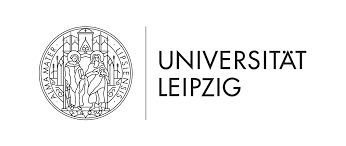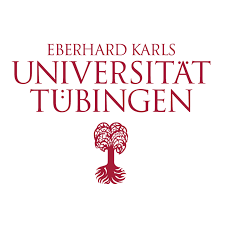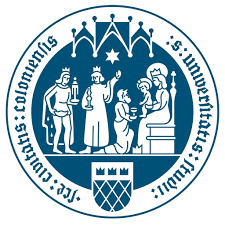Step 1 - Find your Study Program

University of Leipzig
Leipzig
Linguistics
Subjects: Linguistics;Language
M.A. | Master of Arts
Course description
Unlike the study of specific languages and literature, modern linguistics doesn't zero in on just one language. Instead, it examines the functions and structures of all human languages, exploring their differences and commonalities. Linguists engage in field research to document languages worldwide. They conduct psychological experiments in psycholinguistics, compare languages through linguistic typology, and develop formal models in grammatical theory and computational linguistics. This comprehensive approach helps us understand human linguistic abilities deeply. In the study of specific languages and literature, the focus is often on the nuances and intricacies of a particular language or literary tradition. Modern linguistics, however, broadens this scope. It looks at the universal aspects of language, seeking to understand how different languages function and what they share. Field research involves traveling to various regions to document and preserve languages, especially those at risk of disappearing. Psycholinguistics delves into how our minds process language, offering insights into cognitive functions. Linguistic typology compares languages to identify patterns and unique features. Grammatical theory and computational linguistics create models to explain and predict linguistic behavior. This holistic approach in modern linguistics fosters a deeper understanding of how we communicate, bridging gaps between diverse languages and cultures. It
Program Information
| Study Location | Leipzig |
| Start Semester | Summer, Winter |
| Study Form | Part-time |
| Study Type | Postgraduate |
| Teaching Language | English |
| Dual | No |
| Remote | No |
| Application Fee non-EU | No information |
| Study Length | 4 Semesters |
| Tuition Fees per Semester | No Tuition Fee |
| Cost per Semester | 270 EUR |
Step 2 - Check Application Requirements
Are you eligible for studying in Germany?
Take our short quiz and find out whether you meet the criteria to enter a German university directly.
Application Requirements
Language Requirements
| CEFR | B2 |
| IELTS | No information |
| Cambridge (CAE) | No information |
| TOEFL IBT | No information |
Knowledge of English at B2 level of the Common European Framework of Reference for Languages Knowledge of an additional foreign language at the B1 level of the Common European Framework of Reference for Languages
Qualification Requirements
First academic degree in linguistics or general linguistics (graduates of other programmes may be admitted with the agreement of the examination board) Knowledge of English at B2 level of the Common European Framework of Reference for Languages Knowledge of an additional foreign language at the B1 level of the Common European Framework of Reference for Languages The Faculty of Philology will check whether the above requirements have been met and then issue an official notification. This serves as proof that the candidate fulfils the admission requirements. Please inform yourself about deadlines and modalities concerning the subject-specific admission requirements on the department’s website for the degree programme.
Document Requirements
A curriculum vitae in English (1-3 pages) (You may consider using the Europass CV as a template.) 2. Motivation letter in English This letter should explain why you are interested in this particular master’s programme (1–2 pages). In case you have a preference for your mobility track, please specify this in the motivation letter and why you would like to study at the respective universities. 3. Proof of nationality (e.g. copy of passport) 4. Proof of residence According to the rules set by the European Union, this proof can be either provided in the form of a residence certificate issued by the candidate’s municipality OR a certificate from the candidate’s place of work, study, or training issued by the respective institution. The document must have been issued within 12 months before the submission deadline of applying for the scholarship. 5. High school diploma (secondary school leaving certificate, e.g. Baccalaureate, A Levels) or equivalent (AND certified translation into English, if the document is not issued in English or German) 6. Official high school transcripts (AND certified translation into English, if the document is not issued in English or German) 7. University diplomas ( evidence of all completed degrees (e.g. Bachelor’s, Master’s, Diplom) (AND certified translation into English, if the document is not issued in English or German) If you graduate after the application deadline, admission will be considered based on your university transcripts. 8. Complete official transcripts of records from your university (AND certified translation into English, if the document is not issued in English or German) 9. English test results
Application Process
| Acceptance Interview | No |
| Acceptance local admission restrictions | Not restricted |
| Application | directly at the University |
Step 3 - Get studying insights

Free Ebook
Studying in Germany
A comprehensive guide for international students

Free Webinar
How to Apply and Get Admission to a German University
Get ready to study in Germany!
November 13th, 2024
-
Learn how to find your ideal program
-
Step-by-step application guide
-
Tips and tricks to get admission
Step 4 – Apply for a Visa

Free Checklist
Your complete German visa application checklist
Be Prepared for Your Visa Appointment
Value Package
Unlock up to €269* worth of free benefits with the Expatrio Value Package
-
New: includes our free German Bank Account. Automatically connected to your Blocked Account
-
German Blocked Account accepted by all German authorities
-
Award-winning public or private health insurance coverage4
-
Free Travel Health Insurance worth up to €953
-
Up to €90 cashback with your personalized health insurance2
-
Instant Blocked Amount confirmation once funds are received
-
24hr customer response time
-
All-in-One app for life in Germany
-
ADDITIONAL FREE BENEFITS
-
Free International Student ID Card (Digital ISIC) worth up to €15*
-
Free eBooks and resources for life and studies in Germany
-
In-app access to top-tier accommodation for internationals
-
Cost Breakdown
-
Monthly fee: Only €5
-
Blocked Account set-up fee: €0 (€69 cashback)1





